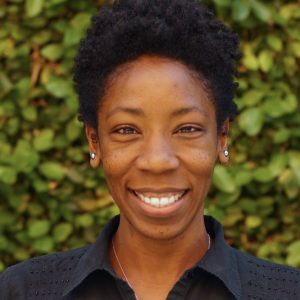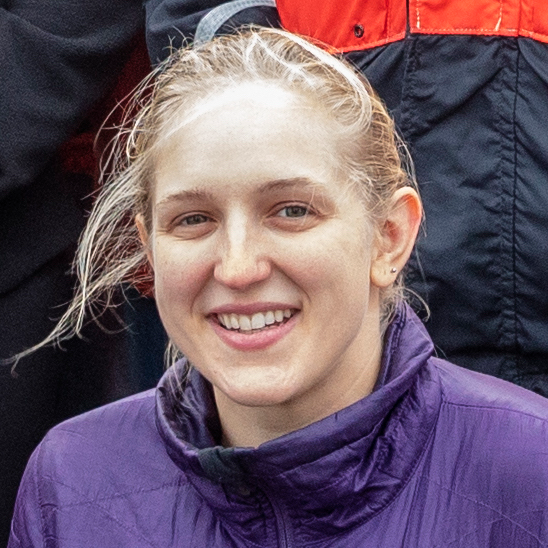OCEANOGRAPHY
STUDENT NEWS
FROM THE REP
What does your ideal job or career look like? How will you get there? Sometimes, it can feel foolish or childish to name all that we want for our lives. The concept of a “unicorn career” leans into this magical idea of “dreaming” but follows it up with concrete and actionable steps toward achieving those dreams. The other great thing about the idea of a “unicorn career” is that it encourages us to build something highly customized, and to define “success” for ourselves. For more on this topic, check out resources from Alaina Levine.
One critically important step for building a unicorn career is to pick “SMART” —specific, measurable, action-oriented, realistic, and time-bound—goals. The myIDP tools help you assess which areas of scientific skill you need to improve on and then track your SMART goals for each of those areas. As an example, I need to increase my depth of knowledge in my specific research area. My SMART goals are to read one scientific paper per week, and to participate in a reading group in my department. The approach of SMART goals can apply to any big task that we want to break down into manageable chunks—including completing a scientific project!
I’d love to hear about the tools and resources you’ve found useful for dreaming and planning for your career—tweet at me @tosoceanography or email me at [email protected].
— Chrissy
Your TOS Student Committee Needs a Few Minutes of Your Time!
One of the committee’s new year’s resolutions is to improve the content we put out on social media. What kinds of content do you engage with? What can we be doing more of/better on social media? Please help us achieve our goal by filling out this short survey!
TOS STUDENT HIGHLIGHT
 Raisha Lovindeer. I initially didn’t know that funding for graduate research is nearly always available in STEM fields. My loving parents, and especially my mom, supported me while I earned my bachelor’s degree at the University of the West Indies in Jamaica. They told me that I could pursue any advanced degrees I wanted, but that I would need to figure out how to do it. I applied for and received a government-based scholarship to cover expenses for obtaining a master’s in marine science at Stony Brook University in New York. That’s when I learned that costs associated with acquiring advanced research degrees in STEM are often fully covered by the university. My master’s was a research MSc, with a dedicated thesis component, similar to MPhil degrees in the British system. My external scholarship gave me more flexibility in choosing a research lab and thesis project, but it was not a requirement for my acceptance to the program. As my scholarship was government-based, I returned to Jamaica and worked in government and industry for many years before further advancing my research career. Now, I’m completing a fully funded PhD in Earth system science at the University of California, Irvine, with a research focus on interactions between light color and ocean biogeochemistry.
Raisha Lovindeer. I initially didn’t know that funding for graduate research is nearly always available in STEM fields. My loving parents, and especially my mom, supported me while I earned my bachelor’s degree at the University of the West Indies in Jamaica. They told me that I could pursue any advanced degrees I wanted, but that I would need to figure out how to do it. I applied for and received a government-based scholarship to cover expenses for obtaining a master’s in marine science at Stony Brook University in New York. That’s when I learned that costs associated with acquiring advanced research degrees in STEM are often fully covered by the university. My master’s was a research MSc, with a dedicated thesis component, similar to MPhil degrees in the British system. My external scholarship gave me more flexibility in choosing a research lab and thesis project, but it was not a requirement for my acceptance to the program. As my scholarship was government-based, I returned to Jamaica and worked in government and industry for many years before further advancing my research career. Now, I’m completing a fully funded PhD in Earth system science at the University of California, Irvine, with a research focus on interactions between light color and ocean biogeochemistry.
There are many people in the Caribbean and elsewhere for whom funding is their largest hurdle to success in STEM. I spread the word as much as possible—that our creativity and research skills are valuable assets others will pay to access, even while obtaining graduate degrees. This knowledge helped fuel my career as an oceanographer, and I aim to help more students become aware of the funding possibilities for research in STEM.
Seen in Oceanography
The MEDEA Program:
Opening a Window into New
Earth Science Data
By D. James Baker and Linda Zall
In the early 1990s, the US environmental science, Intelligence, and Defense communities came together in one of the largest declassification efforts ever undertaken. MEDEA delivered important new data on global change to the science community.
Undergrads: Summer 2021
Summer NSF Research Experiences For Undergraduates (REU) programs, and many others, are accepting applications for the summer of 2021. Check out the listing and links on the TOS website.
Career development and goal-setting
A Life in Science—A Way to Conquer Your Demons (But Maybe Not the Best Way)
By C. Hammer
How to Network During Challenging Times
By A.G. Levine
Goal-Setting vs. Goal-Achieving
By K. Shives and E. Curtis
I Struggled in Grad School—Until I Learned to Set Realistic Goals
By S.R. Lee
Giving a Talk?
Do You Dread Giving Talks? Turn Fear into Joy with These Four Keys
By A.G. Levine
Why Your Scientific Presentation Should Not Be Adapted from a Journal Article
By D. Rubenson
We Need Your Feedback!
You might have noticed that TOS Student News is coming to your inbox less frequently than it used to. This is partly because we haven’t had as much content that seemed super worthwhile. If you would like to be highlighted, or you have ideas for topics we could cover, please tell us! Tweet at Chrissy (@fishy_chrissy) or the TOS account (@tosoceanography), or drop us an email!

